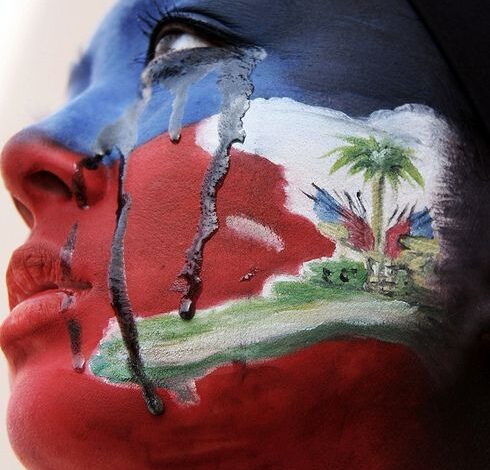10 Things You Are Not Allowed to Do in Haiti

Haiti is a beautiful Caribbean country with a rich cultural heritage, vibrant history, and warm, welcoming people. However, like any other country, Haiti has its own set of rules and customs that visitors are expected to respect. Understanding the cultural, legal, and social norms before traveling can help ensure a positive experience and avoid misunderstandings. Here are 10 things you are not allowed to do in Haiti.
1. Engage in Illegal Drug Activity
Like most countries, Haiti has strict laws against the possession, sale, and use of illegal drugs. Drug-related offenses carry severe penalties, including imprisonment and heavy fines. It is important to refrain from using, possessing, or trafficking drugs while in Haiti. Authorities do not take these violations lightly, and penalties can be severe.
2. Disrespect Religious Practices
Haiti is a predominantly Catholic country, with significant numbers of people practicing Vodou (Voodoo) and other traditional religious beliefs. It is essential to be respectful of these practices, even if they differ from your own religious views. Avoid making derogatory comments or mocking these beliefs, especially when visiting churches or Vodou temples. Disrespecting religious ceremonies or symbols can lead to negative consequences and damage relationships with locals.
3. Engage in Public Displays of Affection
While public displays of affection, such as kissing or holding hands, are generally tolerated in private spaces, it is important to be more discreet in public settings. In some areas, especially in rural regions, overt displays of affection may be seen as inappropriate or disrespectful. It’s best to be aware of your surroundings and maintain a respectful attitude towards local customs.
4. Ignore Local Laws on Photography
While Haiti is a country filled with incredible landscapes, architecture, and people, you should always ask for permission before taking photos of individuals, especially in rural areas or during private ceremonies. In some regions, taking pictures of government buildings, military personnel, or certain landmarks is prohibited, and you could be asked to delete the photos or face penalties. Always respect local privacy and ask permission before taking photos of people, especially in sensitive settings.
5. Criticize the Government or Political Leaders
Haiti has experienced political instability in the past, and discussions about politics can be sensitive. Criticizing the government or political leaders, especially in public or in the presence of locals, can be viewed as disrespectful and could lead to unwanted attention or conflict. It’s best to avoid engaging in political discussions, particularly if you are not well-versed in the country’s complex political landscape.
6. Engage in Child Labor or Exploit Children
Haiti has made significant efforts to address child labor and child exploitation, but challenges persist. It is illegal to engage in activities that exploit or harm children in any way, including child labor. If you are visiting Haiti, it is important to avoid participating in, supporting, or turning a blind eye to exploitative practices. This includes ensuring that any businesses or organizations you support adhere to ethical practices regarding children.
7. Disregard Environmental Protection Laws
Haiti is facing significant environmental challenges, including deforestation, soil erosion, and waste management issues. The government has implemented certain laws to protect the environment, and you are expected to follow these laws. This includes properly disposing of waste, avoiding littering, and respecting local wildlife. In particular, do not engage in activities that involve the illegal logging of trees or harming the local ecosystem.
8. Engage in Public Drinking
While alcohol consumption is legal in Haiti, public drinking is often prohibited, particularly in certain areas or at specific times of day. Drinking alcohol in public places such as streets or beaches may be considered socially inappropriate or against local laws. If you wish to consume alcohol, it is best to do so in licensed establishments like restaurants, hotels, or private spaces.
9. Engage in Corruption or Bribery
Corruption is a challenge that many countries face, and Haiti is no exception. While some travelers might think about offering bribes to get out of trouble or speed up services, bribery is illegal and punishable by law. Engaging in any form of corruption, whether offering or accepting bribes, can lead to severe legal consequences. Always maintain integrity and follow the rules, even when faced with bureaucracy or frustration.
10. Ignore Local Dress Codes
Haitians generally dress modestly, especially in rural areas or religious settings. While you don’t have to wear formal attire at all times, it is essential to avoid wearing overly revealing or inappropriate clothing, particularly when visiting churches, religious sites, or conservative areas. Respect the local dress codes by dressing modestly and respectfully, keeping in mind the cultural expectations.
Haiti offers travelers an incredible opportunity to experience its vibrant culture, stunning landscapes, and historical significance. However, understanding and respecting the laws, customs, and social norms is essential for a smooth and positive visit. By avoiding these 10 common mistakes, you’ll not only stay on the right side of the law but also build positive relationships with the Haitian people. Always be respectful, open-minded, and aware of the local context to ensure a memorable and enjoyable experience in Haiti.




